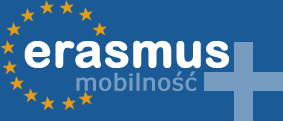object(CompassNotFoundException)#421 (7) {
["message":protected]=>
string(0) ""
["string":"Exception":private]=>
string(0) ""
["code":protected]=>
int(0)
["file":protected]=>
string(60) "/var/www/ss2.glossa.pl/php/classes/CompassDBRecord.class.php"
["line":protected]=>
int(403)
["trace":"Exception":private]=>
array(5) {
[0]=>
array(5) {
["file"]=>
string(62) "/var/www/ss2.glossa.pl/php/classes/SupersystemCourse.class.php"
["line"]=>
int(34)
["function"]=>
string(3) "get"
["class"]=>
string(15) "CompassDBRecord"
["type"]=>
string(2) "::"
}
[1]=>
array(5) {
["file"]=>
string(57) "/var/www/ss2.glossa.pl/php/portals/CourseModule.class.php"
["line"]=>
int(43)
["function"]=>
string(3) "get"
["class"]=>
string(17) "SupersystemCourse"
["type"]=>
string(2) "::"
}
[2]=>
array(5) {
["file"]=>
string(73) "/var/www/ss2.glossa.pl/php/classes/SupersystemPortalModuleCache.class.php"
["line"]=>
int(166)
["function"]=>
string(6) "asHtml"
["class"]=>
string(12) "CourseModule"
["type"]=>
string(2) "->"
}
[3]=>
array(5) {
["file"]=>
string(42) "/var/www/ss2.glossa.pl/php/erasmusplus.php"
["line"]=>
int(56)
["function"]=>
string(9) "getModule"
["class"]=>
string(28) "SupersystemPortalModuleCache"
["type"]=>
string(2) "::"
}
[4]=>
array(5) {
["file"]=>
string(51) "/var/www/old.erasmusplusmobilnosc.pl/kurs/index.php"
["line"]=>
int(79)
["function"]=>
string(6) "course"
["class"]=>
string(11) "ErasmusPlus"
["type"]=>
string(2) "::"
}
}
["previous":"Exception":private]=>
NULL
}
